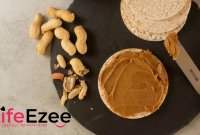There are always new wellness developments to try on a seemingly weekly foundation. Some are higher for you than others. One of the extra well-liked latest developments begins along with your intestine. Your gut homes a broad variety of bacteria and fungi that assist in digesting and soaking up vitamins within the meals you eat.
These microorganisms and fungi are additionally liable for sustaining the integrity of the intestinal barrier, producing nutritional vitamins, lowering irritation within the body, heading off pathogenic microorganisms, and signalling the immune system to provide extra white blood cells. These resident microorganisms collectively type what is called the intestine microbiome — a fancy ecosystem that’s prone to disruption and imbalance by things like antibiotics, a chronically poor food regimen, stress, and drugs.
While certain habits can negatively affect the intestine microbiome, they can be improved and made to flourish with supportive behaviours and meals. Though probiotics get a lot of consideration and credit score for being the go-to salve for the intestine, prebiotics are arguably simply as necessary. Prebiotics are compounds comprised of oligosaccharides, inulin, lactulose, and glycan, which are dietary fibres (carbohydrates) that can be indigestible for people however are the popular supply of gasoline and vitamins for our good organisms within the intestine. In reality, prebiotics selectively feed the helpful microorganisms within the intestine more moderately than any dangerous pathogens.
A superb visible is to image the intestine microbiome as a backyard. Probiotics could be equated to seeds or seedlings, and the healthy microorganisms are the crops. Prebiotics, alternatively, could be pictured as fertilizer, providing useful bacterial crops vitamins to assist their progress. In this manner, the prebiotics feed or gasoline probiotics and the opposite helpful microorganisms already inhabiting our intestines.
Prebiotics are found as fermented fibre in lots of fruit and veggies, as well as some seeds and grains. Adding them to your food regimen may help fortify the nice micro-organisms in your intestine, enhance bowel regularity, and assist healthy digestion. Here are a number of the best prebiotic meals to fill up on next time you go grocery purchasing.
Asparagus
Asparagus accommodates between 2 and 3 grams of inulin per 100 grams or a 20-calorie serving. This makes one of many least calorically dense sources of inulin, a sort of prebiotic fibre recognized to help digestive health, regulate the optimal levels of glucose and insulin, and gasoline Bifidobacterium and Lactobacillus species and different good microorganisms in your intestine. The inulin is more practical when asparagus is uncooked, so attempt incorporating skinny slices into recent salads or shaving spears on sandwiches or atop avocado toast.
Onions and leeks
Onions and leeks are aromatics wealthy in gut-friendly inulin. They could be loved uncooked or cooked, though the fibre breaks down when they’re cooked for lengthy durations of time or caramelized.
Garlic
With solely 4 energy per clove, garlic is an easy strategy to impart taste to your dishes without including energy. Garlic is an allium, like onions and leeks, with many immunoprotective, anti-cancer, and anti-inflammatory advantages, and research has proven that garlic might assist in cutting back the chance of atherosclerosis and coronary heart illness.
It’s additionally rich in fructooligosaccharides and inulin prebiotics to feed your good microorganism. Moreover, because of the antibacterial properties of garlic, it has additionally been proven to inhibit the expansion of pathogenic Clostridium organisms within the intestine. Enjoy garlic minced in stir-fries, on flatbreads, and in hearty soups.
Jerusalem artichokes
Though they share a typical identity, Jerusalem artichokes are not identical to artichokes. Also referred to as sunchokes, Jerusalem artichokes are one of many richest sources of prebiotics, with over 75% of their fibre coming from inulin. As a root vegetable, Jerusalem artichokes are scrumptious in stews and soups, imparting a barely candy, earthy taste.
Cocoa
It takes little convincing to get most guys on board with including somewhat chocolate in their food regimen, and so long as you’re reaching for cocoa powder or darkish chocolate, you’re getting priceless prebiotics in your intestine. To best capitalize on the nutritious advantages of cocoa, select darkish chocolate varieties that can be not less than 70% cocoa — the darker, the higher, and in case you can keep on with real cocoa powder, you’ll maximize the prebiotic efficiency.
Cocoa powder could be combined into smoothies and breakfast bowls and steeped as a heat drink. Cocoa additionally accommodates flavonols, corresponding to catechin, which inhibits irritation and should assist in cutting back the chance of heart problems, coronary heart assaults, and strokes.
Chicory root
Chicory root is well-liked in lots of elements of the world, although it has completely infiltrated the mainstream food regimen within the United States. However, in case you’re seeking to enhance your digestive health, it’s a staple it’s best to scoop up in your next purchasing trip.
Chicory root is likely one of the best sources of inulin fibre, a profit that has landed it on the components checklist of many well-liked fibre-enriched cereals, snacks, bread, granola bars, and packaged health meals. Another strategy to take pleasure in chicory is as a decaffeinated coffee substitute. By steeping the basis in boiling water, you’ll be able to brew a prebiotic-rich tea with an analogous taste profile to coffee.
Apples
Apples are a beloved fruit as a result of their crisp texture, candy and tart taste, and flexibility. Perhaps the outdated adage, “An apple a day keeps the doctor away,” was prescient relating to digestive health as well since apples are an incredible supply of prebiotic pectin. In reality, about half of the fibre in apples is pectin, a prebiotic fibre that feeds the intestine butyrate-producing intestine microorganisms.
Butyrate, or butyric acid, is a short-chain fatty acid produced by useful organisms once they ferment carbohydrates. It reduces irritation, helps assist the intestine barrier, and feeds the cells that line the colon.
Dandelion greens
Dandelion greens aren’t the headliners within the vitamin world that different leafy greens like kale and spinach are, however relating to digestive health, maybe they need to be. The lowly backyard weed is an implausible supply of fibre, antioxidants, nutritional vitamins, and minerals, and it acts as a diuretic, so it could cut back blood stress. Dandelion greens are a bitter spring inexperienced that may be loved in salads.
Flaxseeds
Flaxseeds are lauded for his or her spectacular vitamin profile, and significantly their omega-3 fatty acid content. In reality, they’re one of many best vegan sources of those anti-inflammatory, heart-healthy compounds. They are additionally filled with fibre, particularly prebiotic inulin, making them a powerhouse in your digestive health as well. Sprinkle them on salads, in oatmeal, in smoothies, or on do-it-yourself protein balls to spice up your consumption of fibre, nutritional vitamins, minerals, protein, and fats.
Bananas
Bananas are one other good supply of prebiotic inulin, though it’s a must to pucker your manner by an unripe, inexperienced one to completely reap the advantages. By the time the banana has softened and ripened to its joyful yellow shade, a lot of the prebiotic fibre has been damaged. If you’re on the lookout for an extra palatable strategy to take pleasure in unripe bananas, attempt slicing them skinny in a single day of oats, sprinkling them with cinnamon, or adding them in cottage cheese.
Oats and barley
Whole grains have been proven to extend the abundance of healthy intestine organisms like Lactobacillus species. Oats and barley comprise the very best quantity of the prebiotic fibre, beta-glucan, which has been found to scale back cholesterol and triglyceride ranges and feed the intestine microorganism. Both entire oats and barley could be porridge or stewed in a single day for a muesli-type breakfast filled with filling vitamins.
Should you take a prebiotic complement?
Many of the meals we listed above are accessible to the typical individual. However, in case you don’t have entry to those meals, you don’t need to always ensure you are consuming sufficient to assist your intestine microbiome, You can also make things simpler for yourself by taking prebiotic dietary supplements. Make certain to retail your prebiotic dietary supplements accurately, as many require refrigeration.
There are quite a few dietary supplements to select from, so make sure to do your analysis to seek out one that’s affordable and high-quality.




